Introduction
Dogs can eat passion fruit – after all, it is not on the ASPCA’s list of “People Foods to Avoid Feeding your Pet.” However, there are several safety considerations.
First, the fruit needs to be fully ripe. Second, only the flesh is edible for dogs. Third, you must serve it in small amounts and infrequently.
Last but not least, let’s not forget that every dog has different taste preferences. While some may enjoy the passion fruit’s sweet and tart flavor, others may not.
Why is Passion Fruit Good for Dogs?
There are several types of passion fruits, but purple and yellow are the most common. Although visually different, both passion fruit versions have similar nutritional profiles. Let’s see what makes passion fruit a health-boosting addition to your dog’s menu.
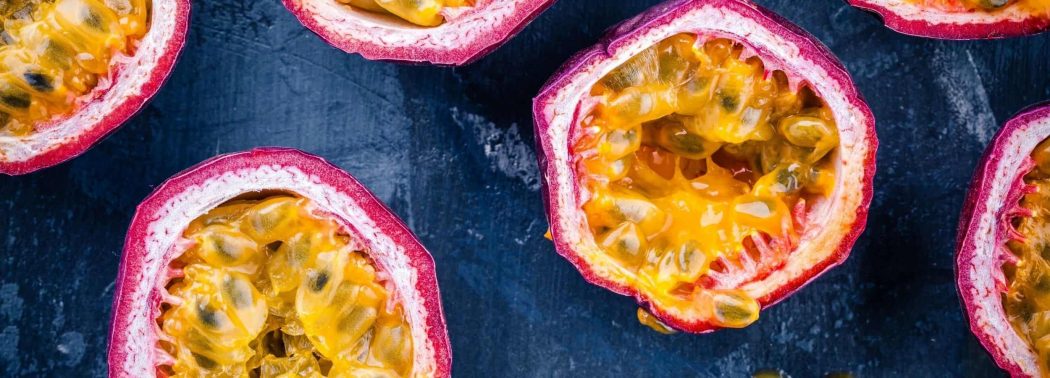
Vitamins A and C
Vitamin A supports good eyesight and healthy skin. Vitamin C boosts the immune system, helps regeneration processes, and improves iron absorption (an essential mineral also found in passion fruit).
Minerals
Passion fruit is a good source of various minerals, including potassium, magnesium, calcium, iron, and phosphorus. Plus, the overall nutritional profile of passion fruit makes these minerals easily absorbable.
Polyphenols
Studies show that passion fruit contains more polyphenols than other tropical fruits. Polyphenols support cardiovascular health, prevent blood sugar spikes, and manage chronic inflammation.
Anti-inflammatory and antioxidant
Passion fruit is rich in several naturally occurring antioxidants and anti-inflammatory compounds. These nutrients are vital for fighting off damaging free radicals and for preventing inflammations.
Dietary fiber
One passion fruit contains 2 grams of dietary fiber. Fibers are critical for proper digestion and normal intestinal motility. Regular fiber intake is also linked with decreased risks of heart disease, diabetes, and obesity.
Calming supplements
This benefit does not stem directly from the passion fruit, but it is definitely worth mentioning. Namely, the passionflower has strong calming properties and is used in many dog supplements for relaxation.
Can Passion Fruit be Bad for Dogs?
With so many health benefits, why not feed dogs passion fruit every day? Well, while occasional passion fruits snacks are beneficial, too many are harmful. Namely, fruits, in general, are too sugary and not part of the natural canine diet.
Giving your dog passion fruit comes with potential risks and considerations. Let’s look at the reasons why passion fruit must not be a regular part of your dog’s diet.
Stomach Upset
Dogs have sensitive tummies. Therefore, all high-sugar and high-fiber foods have the potential to trigger upsets. Such stomach upsets are transient and usually manifest with diarrhea, vomiting, appetite changes, and abdominal pain.
Cyanogenic glycoside
The unripe passion fruit flesh (as well as the rind and seeds) contains a chemical compound called cyanogenic glycoside which, once digested, turns into cyanide. Cyanide poisoning in dogs is a life-threatening situation that warrants immediate veterinary attention.
Food allergies
Latex food allergies are not limited to humans. Dogs with latex allergies will be sensitive to passion fruit and other tropical fruits, such as bananas, papayas, mangoes, melons, and pineapples.
How Much Passion Fruit Can my Dog Eat?
Depending on your dog’s size, the recommended serving size of passion fruit is between 1 and 3 spoons. Obviously, the lower end of the specter is reserved for smaller dogs and the higher for bigger dogs. Medium dogs can tolerate two spoons of passion fruit.
As for serving frequency – once every 2 or 3 weeks is perfectly fine. In theory, your dog can have passion fruit more frequently, but there are other fruits you can add to the menu for better versatility.
Finally, unlike most vines, the passion fruit vine is not toxic to dogs. This does not mean you should be feeding it on purpose. It means there is no need to rush to the vet’s office if you catch your dog munching on passion fruit vines.

How to Prepare and Serve Passion Fruit for your Dog?
It all starts with shopping. When in season, passion fruit is readily available in grocery stores and farmer’s markets. Look for a piece of passion fruit that feels rather heavy for its size and has thick skin (if possible, buying organic is highly recommended).
Once you have the passion fruit at home, please give it a thorough wash. Then, carefully scoop out the flesh and discard the rind and seeds (dispose of them safely and out of your dog’s reach). Since dogs are voracious eaters, it is a good idea to slice the passion fruit flesh into bite-sized chunks.
You can serve the passion fruit chunks fresh or bake them into dog-friendly and fruity treats (passion fruit chunks couple great with oats and xylitol-free peanut butter). If not using the passion fruit immediately, store it in the refrigerator in an air-tight container.
Frequently Asked Questions
An occasional lick is not harmful, but you should not give your dog passion fruit yogurt on purpose. Passion fruit yogurt contains more sugars, fats, and additives than the dog’s stomach can process. Plus, let’s not forget that most dogs are lactose intolerant.
If the passion fruit juice is homemade using nothing but freshly squeezed passion fruit flesh, the answer is yes. However, if you refer to store-bought juices, the answer is no. Commercially available passion fruit juices are loaded with sugars and additives and often contain grounded passion fruit seeds (which are toxic to dogs).
Summary
To answer the main question directly – yes, dogs can eat passion fruit as long as it is adequately prepared and served occasionally and in small amounts. Basically, as with most non-toxic human foods when it comes to passion fruit for dogs, moderation is the key.
Today, many once foreign and exotic fruits are easily accessible. If you are not sure whether a particular fruit is safe for dogs, err on the side of caution and do not give it to your dog. It is always a good idea to check with your vet before adding something new to the menu.
Sources
- People Foods to Avoid Feeding Your Pets, 2020, ASPCA
- Passion Fruit 101 — Everything You Need to Know, 2019, Helen West
- Cyanide Poisoning in Animals, 2021, Rhian B. Cope
- The role of vitamin C in iron absorption, L Hallberg, M Brune, L Rossander
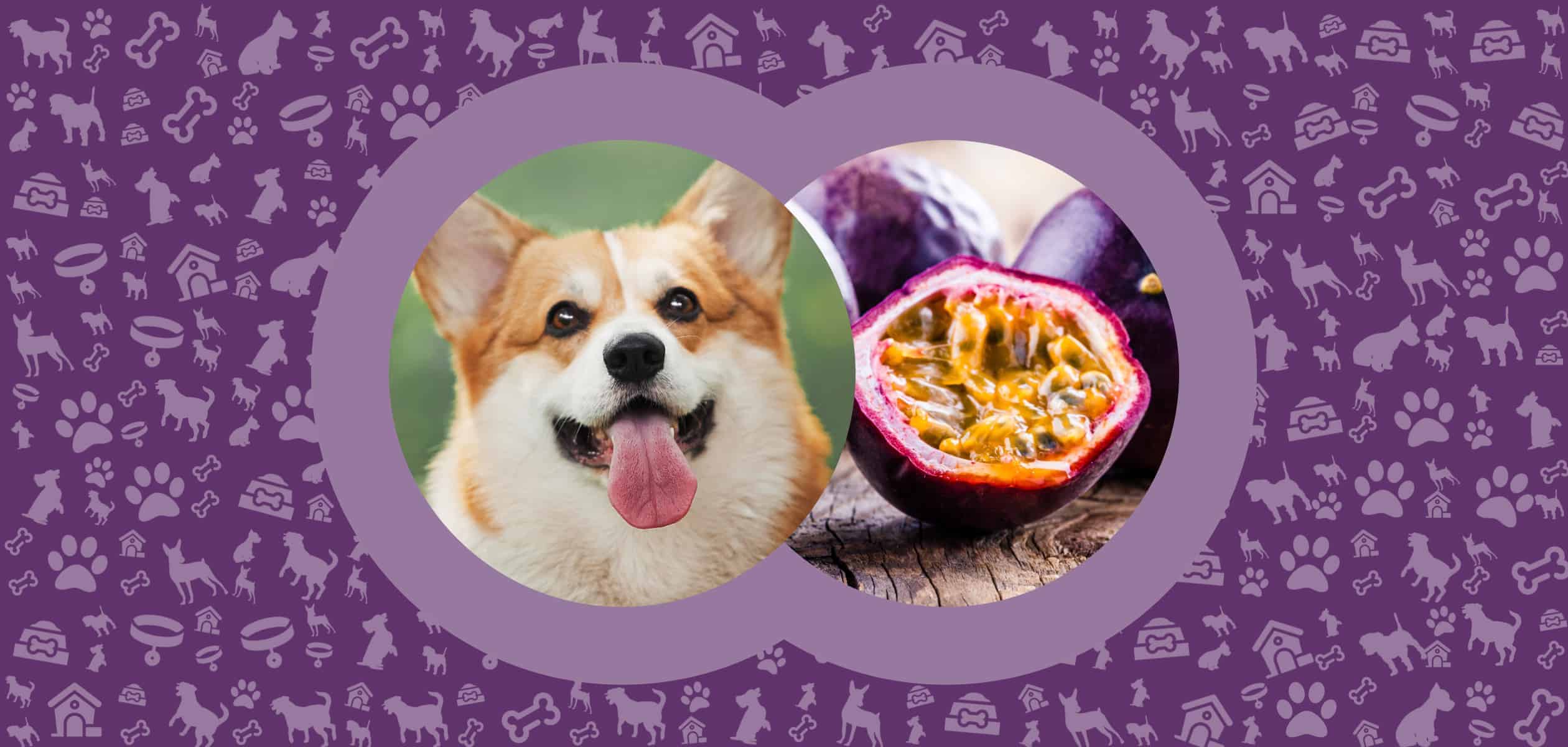
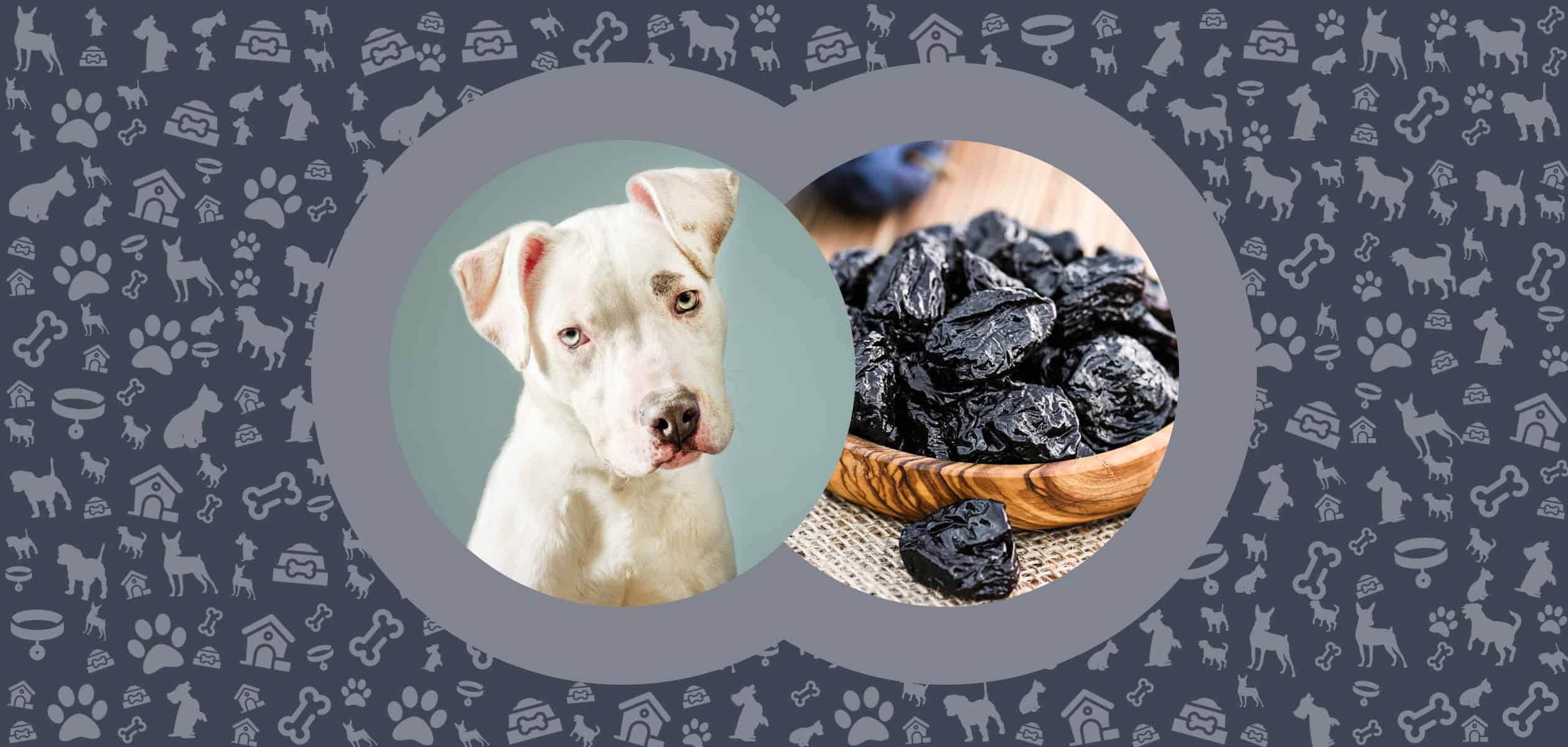

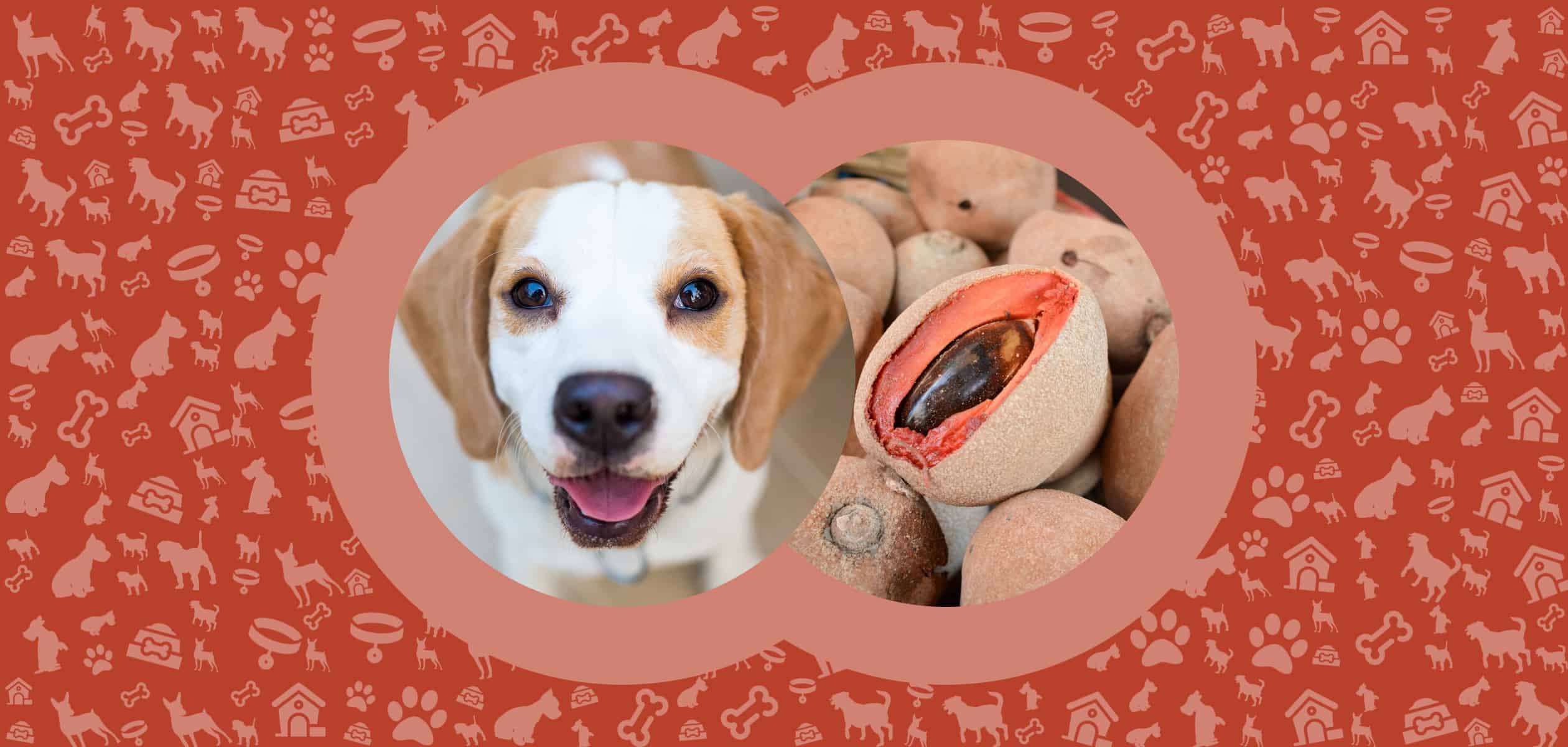
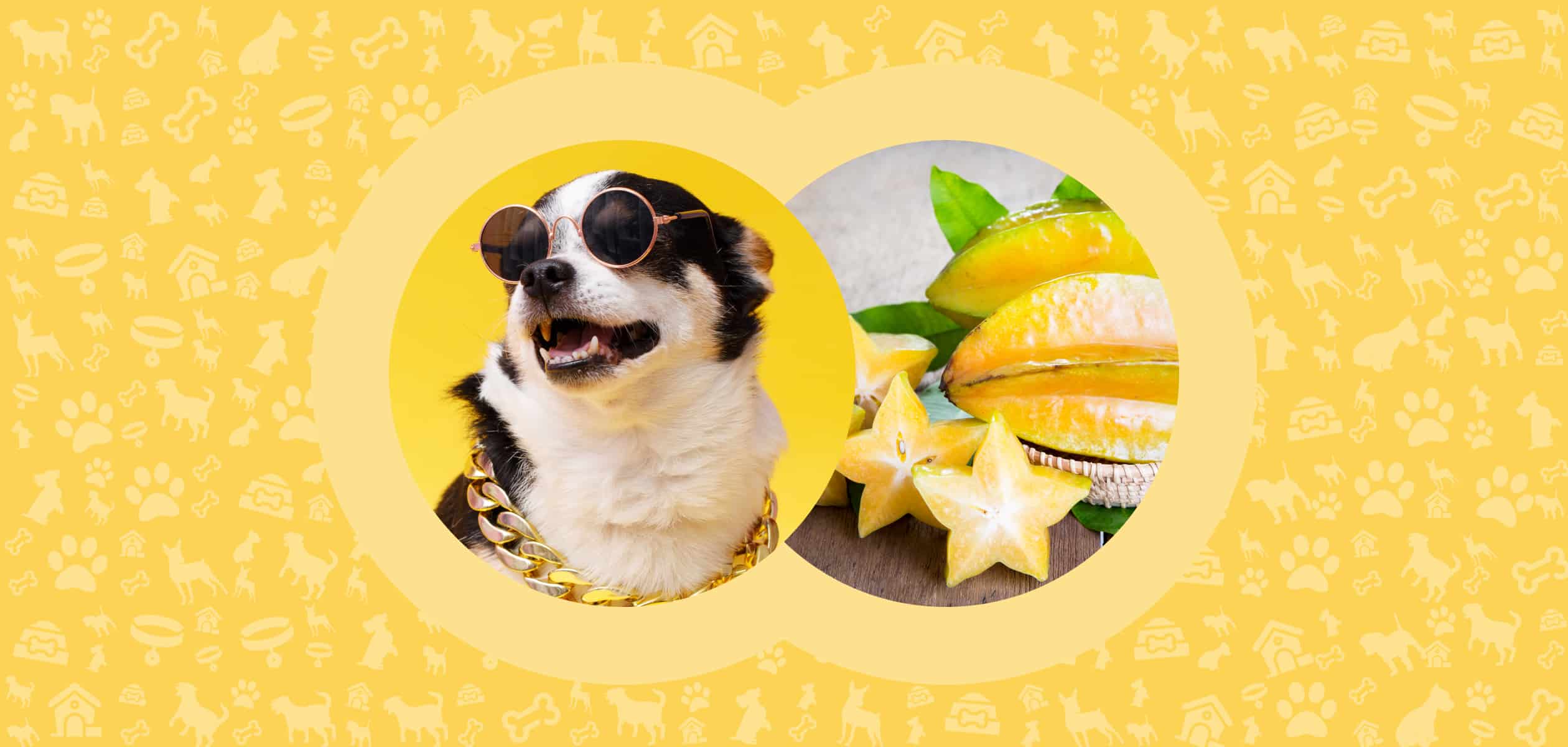

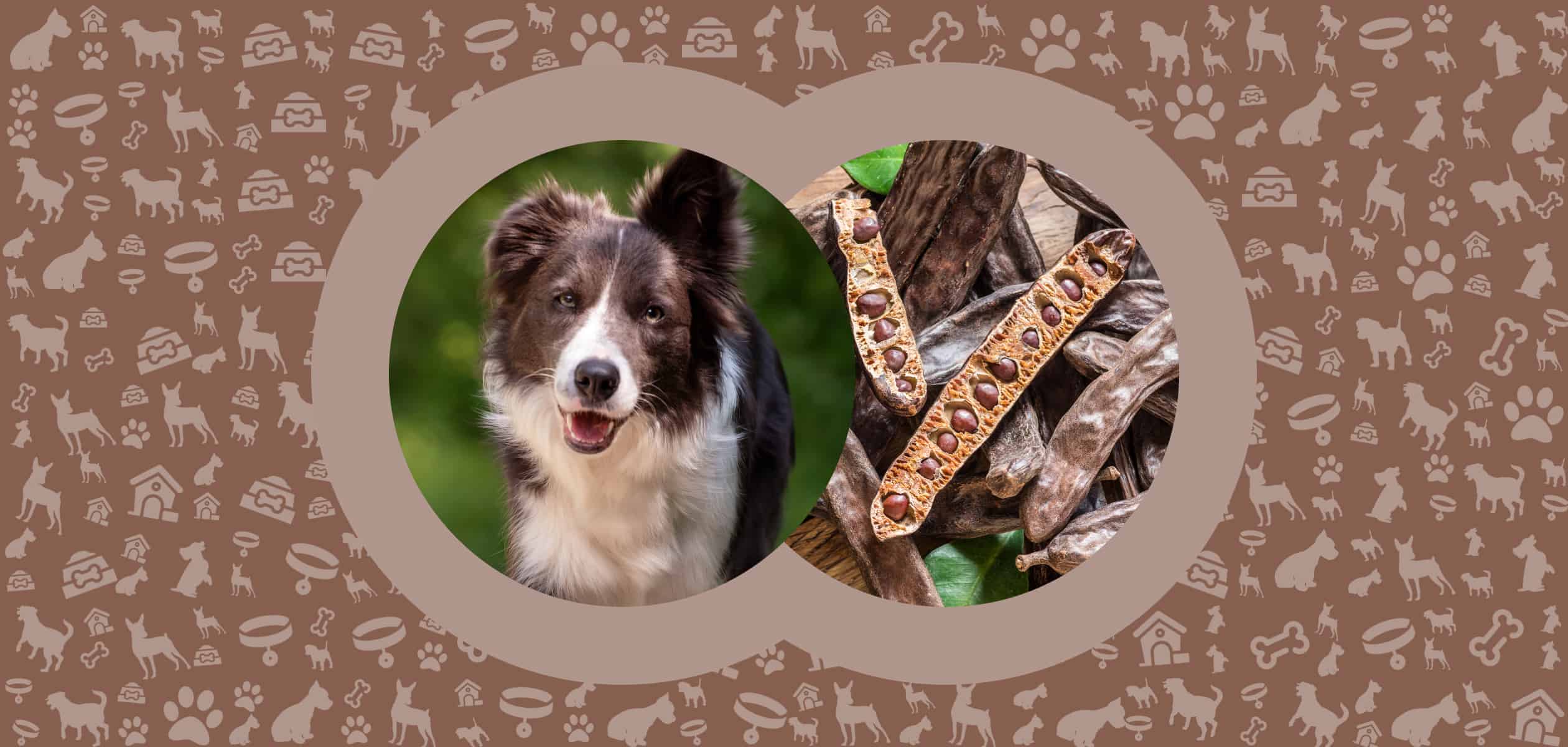
Leave a Comment